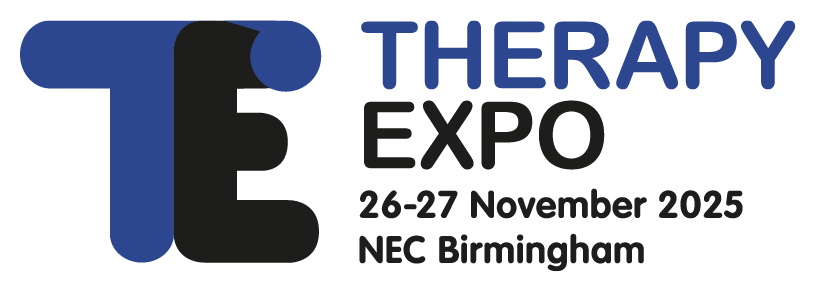Health inequalities in MSK: closing the gap - Why does this matter to you?
)
Written by Dr Sharon Chan-Braddock and Amanda Hensman-Crook
Background
Around one third of the UK adult population, over 20 million people, live with musculoskeletal (MSK) conditions including arthritis and chronic pain.1 MSK conditions are one of the biggest contributors to years lived with disability (YLDs),1 the third most common reason for working days lost,2 and associated with higher prevalence of multi-morbidities in the UK.1,3-5 At a global level, an analysis of Global Burden of Disease (GBD) 2019 data6 showed that approximately 1.71 billion people worldwide live with musculoskeletal conditions.7 MSK conditions are the second-highest ranked cause of non-fatal disability,8.9 second only to mental health conditions,10 and commonly occur in multimorbid presentations.11
For the first time, MSK conditions sit within the NHS major condition strategic framework (2023), alongside five other major conditions such as mental health and cancer.12 The impact of MSK conditions can be huge and can be detrimental in many aspects such as physical, psychological, emotional and socioeconomical. Owing to population growth and ageing, the number of people living with MSK conditions and associated YLDs, is rapidly increasing,13 which puts an increasing strain on our healthcare systems and society.
The prevalence and impact of MSK conditions are not experienced equally across the population. There have been publications and campaigns around tackling inequalities in MSK health to grow awareness.1,5,14 Health inequalities have been defined as avoidable, unfair and systematic differences in health between different groups of people within society.15,16
Evidence shows that MSK conditions, arthritis and chronic pain are more common in areas of greater poverty.1 Some minority ethnic groups,17 people who live in more deprived parts of the UK, women and older people are disproportionally affected by MSK conditions and chronic pain.1 Health inequalities also have an impact on people’s access to services, longer waiting times and poorer clinical outcomes.13,18
However, only 20% of our health and health inequalities are related to healthcare.5 Health inequalities are largely driven by the wider determinants of health. The recent ARMA inquiry report (2024) found that the most significant factors relating to poor MSK health are socio-economic factors such as poverty, education, employment, and an environmental and food culture that defers physical activity and a healthy diet.5 For those who work with people with MSK conditions and experiencing health inequalities, the collective MSK workforce and focus must consider this wider context.
The MSK workforce have a duty and a significant role to play in addressing the care gap to support local population, and to contribute delivering a more equitable health system and healthier communities collaboratively for the future MSK provision.
Why does this matter to you?
For clinicians:
-
To have a better awareness of health inequalities and their impact on MSK health.
-
To have more recognition of factors other than MSK conditions and be able to look beyond the MSK lens.
-
To have a better understanding of how deprivation and various socio-economic factors widen the gap in health inequalities, and actions which can be taken to improve outcomes.
-
To be better equipped in providing supported self-management, facilitating health behaviour changes, and using health coaching approach in population experiencing health inequalities.
-
To be more innovative and be a local champion in supporting service re-design that tailors local population and local needs.
For service managers and clinical leads:
-
To have a better awareness of health inequalities and their impact on MSK health.
-
To have a better understanding in re-designing services and collaborative pathways in addressing care gap and health inequalities in a population approach.
-
To have an opportunity to learn from case studies and innovative services who have taken steps in response to local population experiencing health inequalities.
-
To have a better understanding in how you can support your workforce such as staff training, self-management resources to support low health literacy and digital exclusion, and quality improvement projects target your community.
-
To consider meaningful data collection in relation to health inequalities and MSK health, which inform developing action plans and intervention to address barriers and population needs.
For commissioners and ICB:
-
To have a better awareness of health inequalities and their impact on MSK health.
-
To have a better understanding why resources, funding and workforce transformation are necessary in tackling inequalities in MSK health.
-
To have a better understanding why it is important to look beyond the MSK lens, and support workplace training in health inequalities, health coaching and multimorbidity management.
-
To recognise key to addressing health inequalities in MSK health including improving access to services, health outcomes, supported self-management tools, and the experiences of local population.
-
To consider factors that would reduce health inequalities in the decision-making process and investment allocation.
Key messages
All health care professionals, managers and commissioners at every level should recognise the value of MSK health and give priority to support this agenda. A number of reports consistently highlight the issues of MSK health inequalities.1,5,13 The NHS long term plan (2019) also set out key actions the NHS would take to strengthen its contribution to reducing healthcare inequalities.19 Tackling health inequalities are everyone’s business in the MSK workforce. Developing a workforce with right skill sets and knowledge to utilise data to drive insights and interventions, and with collective commitment, there is a real opportunity for health services and the MSK workforce to push in the right direction in delivering a more equitable health system and a better future for MSK health conditions.
References
1. Versus Arthritis. The State of Musculoskeletal Health 2023. Arthritis and other musculoskeletal conditions in numbers. UK: Versus Arthritis; 2023. Available from: versus-arthritis-state-msk-musculoskeletal-health-2023pdf.pdf (versusarthritis.org)
2. Office for National Statistics. Sickness absence in the UK labour market. UK: Office for National Statistics; 2022. Available from: Sickness absence in the UK labour market - Office for National Statistics (ons.gov.uk)
3. Barnett K, Mercer SW, Norbury M, Watt G, Wyke S, Guthrie B. Epidemiology of multimorbidity and implications for health care, research, and medical education: a cross-sectional study. The Lancet. 2012 Jul 7;380(9836):37-43.
4. Gondek D, Bann D, Brown M, Hamer M, Sullivan A, Ploubidis GB. Prevalence and early-life determinants of mid-life multimorbidity: evidence from the 1970 British birth cohort. BMC Public Health. 2021 Dec;21:1-1.
5. ARMA. Act now: Musculoskeletal Health Inequalities and Deprivation. Report of ARMA’s inquiry. UK: ARMA; 2024. Available from: Act Now: Musculoskeletal Health Inequalities and Deprivation (arma.uk.net) (accessed on 19 March 2024)
6. Global Burden of Disease Collaborative Network. Global Burden of Disease Study 2019 (GBD 2019) Results. Seattle: Institute for Health Metrics and Evaluation (IHME); 2020. Available from:
7. Cieza A, Causey K, Kamenov K, Hanson SW, Chatterji S, Vos T. Global estimates of the need for rehabilitation based on the Global Burden of Disease study 2019: a systematic analysis for the Global Burden of Disease Study 2019. The Lancet. 2020 Dec 19;396(10267):2006-17.
8. James SL, Abate D, Abate KH, Abay SM, Abbafati C, Abbasi N, Abbastabar H, Abd-Allah F, Abdela J, Abdelalim A, Abdollahpour I. Global, regional, and national incidence, prevalence, and years lived with disability for 354 diseases and injuries for 195 countries and territories, 1990–2017: a systematic analysis for the Global Burden of Disease Study 2017. The Lancet. 2018 Nov 10;392(10159):1789-858.
9. Gill TK, Mittinty MM, March LM, Steinmetz JD, Culbreth GT, Cross M, Kopec JA, Woolf AD, Haile LM, Hagins H, Ong KL. Global, regional, and national burden of other musculoskeletal disorders, 1990–2020, and projections to 2050: a systematic analysis of the Global Burden of Disease Study 2021. The Lancet Rheumatology. 2023 Nov 1;5(11):e670-82.
10. Vos T, Abajobir AA, Abate KH, Abbafati C, Abbas KM, Abd-Allah F, Abdulkader RS, Abdulle AM, Abebo TA, Abera SF, Aboyans V. Global, regional, and national incidence, prevalence, and years lived with disability for 328 diseases and injuries for 195 countries, 1990–2016: a systematic analysis for the Global Burden of Disease Study 2016. The Lancet. 2017 Sep 16;390(10100):1211-59.
11. Duffield SJ, Ellis BM, Goodson N, Walker-Bone K, Conaghan PG, Margham T, Loftis T. The contribution of musculoskeletal disorders in multimorbidity: implications for practice and policy. Best practice & research clinical rheumatology. 2017 Apr 1;31(2):129-44.
12. Department of Health and Social Care. Policy Paper. Major conditions strategy: case for change and our strategic framework. UK: Department of Health and Social Care; 2023. Available from: Major conditions strategy: case for change and our strategic framework - GOV.UK (www.gov.uk)
13. World Health Organisation. Musculoskeletal Health. WHO; 2022. Available from: Musculoskeletal health (who.int)
14. Robertson, R., Blythe, N. and Jefferies, D. Tackling health inequalities on NHS waiting lists. UK: The King’s Fund; 2023. Available from: Tackling Health Inequalities In Waiting Lists Report (kingsfund.org.uk)
15. Williams E, Buck D, Babalola G, Maguire D. What are health inequalities? UK: The King’s fund; 2022. Available from: www.kingsfund.org.uk/publications/what-are-health-inequalities
16. NHS England (2022) What are healthcare inequalities? UK: NHS England; 2022. Available from: NHS England » What are healthcare inequalities?
17. Office for Health Improvement and Disparities. Musculoskeletal health: trends, risk factors and disparities in England. UK: Fingertips; 2022. Available from: Musculoskeletal health: trends, risk factors and disparities in England (phe.org.uk)
18. ARMA. MSK Health Equalities. Report of Roundtable. UK: ARMA; 2021. MSK Health Equalities Page (arma.uk.net) (accessed on 10 March 2024)
19. The NHS Long term plan. UK: NHS; 2019. Available from: NHS Long Term Plan v1.2 August 2019


.png)
.png)











.png)




